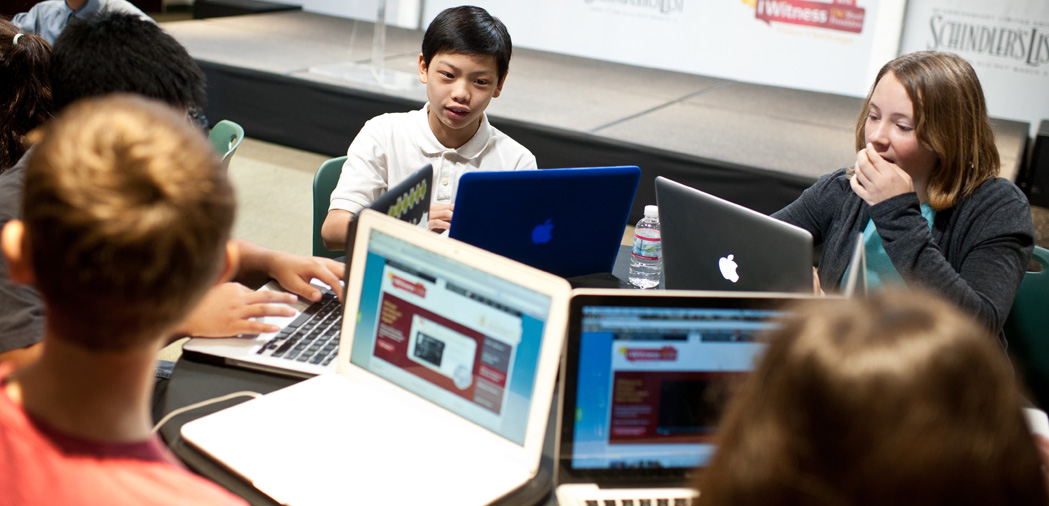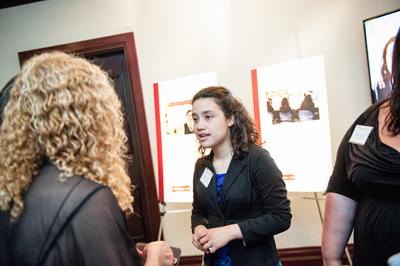USC Shoah Foundation Launches 2015 IWitness Video Challenge

Secondary school students have the chance to win a trip to Los Angeles by entering the second annual IWitness Video Challenge hosted by USC Shoah Foundation – The Institute for Visual History and Education.
The contest challenges students to act on the legacy of the Oscar-winning film Schindler’s List and do something positive in their community that exemplifies the movie’s message that one person can make a difference. It is open to all secondary school students in the United States and Canada who attend public, private or home schools.
Participants will be guided in the IWitness Video Challenge activity to build a community service project through the examples they learn from engaging with testimonies in IWitness, the Institute’s free educational website. IWitness brings the human stories the Institute’s Visual History Archive to teachers and their students via engaging multimedia learning activities.
Students are then tasked with creating a one- to four-minute video essay with an intuitive video-editing tool on the IWitness website, allowing them to link their voices to those in the archive who inspired them to act.
 Ruth Hernandez presents her winning video at the 2014 Ambassadors for Humanity Gala in Los Angeles
Ruth Hernandez presents her winning video at the 2014 Ambassadors for Humanity Gala in Los AngelesUSC Shoah Foundation founder Steven Spielberg helped launch the inaugural IWitness Video Challenge in February 2013. The challenge was designed around the same premise as the movie Schindler’s List, that one person can make a difference. As Spielberg said at the time of the inaugural launch, “We can use IWitness to show the power of random acts of kindness, the significance of contribution to community and the very idea that the best way to teach empathy is with examples of it so that maybe someday kindness will be a natural reflex.”
Evaluation of IWitness over the past year has resulted in research that shows up to a 28 percent increase in an interest in helping others after they engaged with IWitness. Students also showed a 30 percent improvement in their critical thinking skills. In all, 72 percent of students surveyed said they benefitted from using IWitness.
Teachers interested in signing up their students for the IWitness Video Challenge must submit their class-winning entry by May 8, 2015. Regional winners will be announced on May 29, 2015. The national winner will be announced on June 5, 2015.
Now used in all 50 states and 58 countries, IWitness gives students access to some of the more than 53,000 testimonies of survivors of not only the Holocaust, but also the Rwandan Tutsi Genocide and Nanjing Massacre.
“Not only does IWitness teach digital skills that are so important today, it provides invaluable content that helps students understand that they not only have the power to make positive changes, but also the responsibility to take action,” said USC Shoah Foundation Executive Director Stephen D. Smith. “And now, with the IWitness Challenge, students can become teachers by creating and sharing their videos.”